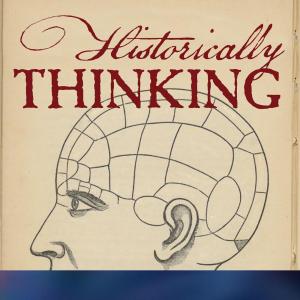Historically Thinking

Episode 279: Count the Dead
Stephen Berry begins his new book Count the Dead: Coroners, Quants, and the Birth of Death as We Know It with these two paragraphs: This is a book about death and data or, more specifically, about the dead as data. The dead and the formerly living are not the same. The formerly living built the Parthenon and the Brooklyn Bridge…[they] also made brutal wars and ghastly decisions we are still struggling to live down. Revered or reviled, however, the formerly living have always counted because we still talk about them. Loved or hated, they built our world. This is a book about a group that did not count for a very long time—the actual dead—the great ghostly horde who made their mark not in their living but in their collective dying, producing patterns of mortality that proved critical to the systematization of public health, casualty reporting, and human rights… In Berry's telling, one of the greatest episodes in the history of humanity is the doubling of life expectancy between 1850 and 1950. But for him this is not a story simply of medical progress. It begins with the seemingly simple, mundane, and boring creation of death registration, beginning with the 1850 census when for the first time causes of death were recorded. This, Berry argues, was the foundation of the public health profession, and of the progress that followed. Without knowing a thing, without naming a thing, progress could not be made. Stephen Berry is a "historian of mortality", which craft he practices at the University of Georgia, where he is Gregory Professor of the Civil War Era. He has authored or edited six books, including House of Abraham: Lincoln and the Todds, a Family Divided by War, and Weirding the War: Stories from the Civil War's Ragged Edges.






 Visit Podcast Website
Visit Podcast Website RSS Podcast Feed
RSS Podcast Feed Subscribe
Subscribe
 Add to MyCast
Add to MyCast